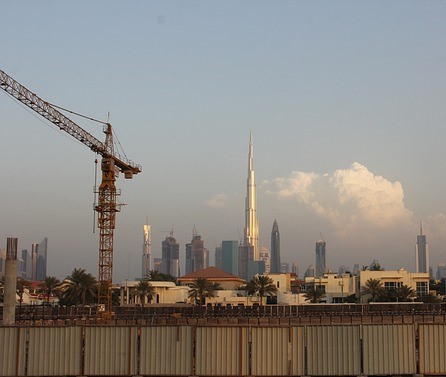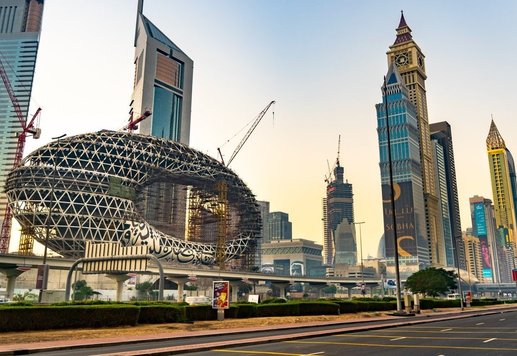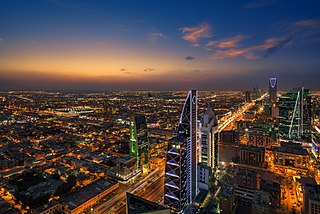COO Wesley Schwalje assesses the successes, challenges and prospects for ADGM and Strata
- ADGM has registered 170 countries in its first year of operations, but its capacity to be leading global financial center will only become evident in the next 5-10 years
- Strata's success can be attributed to government support and its strategic acumen, but international challengers and falling travel demand pose key risks
Abu Dhabi Chamber of Commerce and Industry (ADCCI) recently sat down with Wes Schwalje, COO of Tahseen Consulting, to discuss how Abu Dhabi Global Market Place is faring after one year in operation and how Abu Dhabi’s plans to establish the UAE as a global MRO and manufacturing hub is evolving.
DCCI: How might Abu Dhabi Global Marketplace (ADGM) change the economic landscape of Abu Dhabi and the UAE?
Schwalje: Abu Dhabi has traditionally been a strong player in the regional financial services sector. ADGM will enable Abu Dhabi to expand its influence from a regional financial hub focused primarily on commercial and Islamic banking to an international financial center that offers a wider array of financial services such as private banking, wealth management, and asset management.
FINANCIAL CENTERS LIKE ADGM RESPOND TO DEMAND FOR INCREASINGLY SOPHISTICATED FINANCIAL SERVICES FUELED BY DEVELOPMENT
This is why the Abu Dhabi Economic Vision 2030 and Dubai Vision 2021 have a strong focus on increasing economic diversification by developing a sustainable economy which can prosper in a post-carbon era. Over the longer term, the vision is to position the UAE and its constituent Emirates as a unified international financial services hub offering a full spectrum of financial services comparable to other leading global financial centers.
ADCCI: One year in, has ADGM been a success?
Schwalje: ADGM registered 170 companies in its first year of operation. If you contrast this with the initial tenant attraction of other regional financial centers and free zones, ADGM has had remarkable success. For example, a year after the Qatar Financial Center opened in 2004, it had attracted approximately 50 tenants. Back in 2000 the recently launched Dubai Internet City signed up 180 tenants in its initial year of operation. Three years after its launch in 2008, the Dubai International Financial Center had about 400 tenants.
However, the number of companies licensed by ADGM to date does not say much about whether Abu Dhabi is developing a broader financial services industry in line with the Abu Dhabi Economic Vision 2030.
ADGM’s true success in becoming a financial services hub will only be apparent in a 5-10 year timeframe, but the initial signs of success that have foreshadowed the success of other industry free zones in the region are there.
ADCCI: Shifting gears a bit, what are Strata’s strengths?
Schwalje: In 2008, the Economic Vision 2030 outlined Abu Dhabi’s intention to become a global player in the aerospace MRO and parts manufacturing segments.
AEROSPACE WAS CHOSEN AS A CAPITAL-INTENSIVE, EXPORT-ORIENTED FOCUS SECTOR THAT COULD ADVANCE KNOWLEDGE BASED ECONOMIC TRANSFORMATION.
Strong government support for the development of the aerospace sector, investment in aviation infrastructure like Nibras Al Ain Aerospace Park and the Midfield Terminal, as well as the growth of both Dubai and Abu Dhabi as global aviation hubs has ensured that Strata has a strong local market for its products. As one of the largest global purchasers of Airbus and Boeing, UAE national carriers are strong captive domestic customers which Strata has leveraged to grow internationally.
The success of Strata is both a function of the support the aerospace industry has received from the Abu Dhabi Government as well as shrewd strategic execution of Strata and its owner Mubadala to build world-class MRO and manufacturing capabilities.
Strata has leveraged the capabilities it has built serving domestic customers to become a global supplier to aerospace industry leaders like Airbus, Boeing, Rolls-Royce, and GE.
ADCCI: What might the pitfalls/competition be in the coming years?
Schwalje: Decreasing passenger unit revenues due to the fall in oil prices, along with foreign currency fluctuations, and pricing pressures are currently a key risk to Strata. For example, in November 2016 Emirates Group reported profits down 64% from the previous year due to strong competition and dampened travel demand. However, the internationalization of Strata’s activities will enable it to better weather industry demand fluctuations that may affect aircraft deliveries and maintenance requirements. Competition from other emergent MRO hubs will likely also present a challenge to Abu Dhabi’s plans to consolidate its gains to continue to build its aerospace sector. For example, India, with its growing aviation sector, skilled workforce, and cost advantages, could present strong competition to Abu Dhabi. Another emerging issue that is still unclear is how the introduction of value added tax in 2018 will affect the sector in terms of competing with foreign MROs.





































